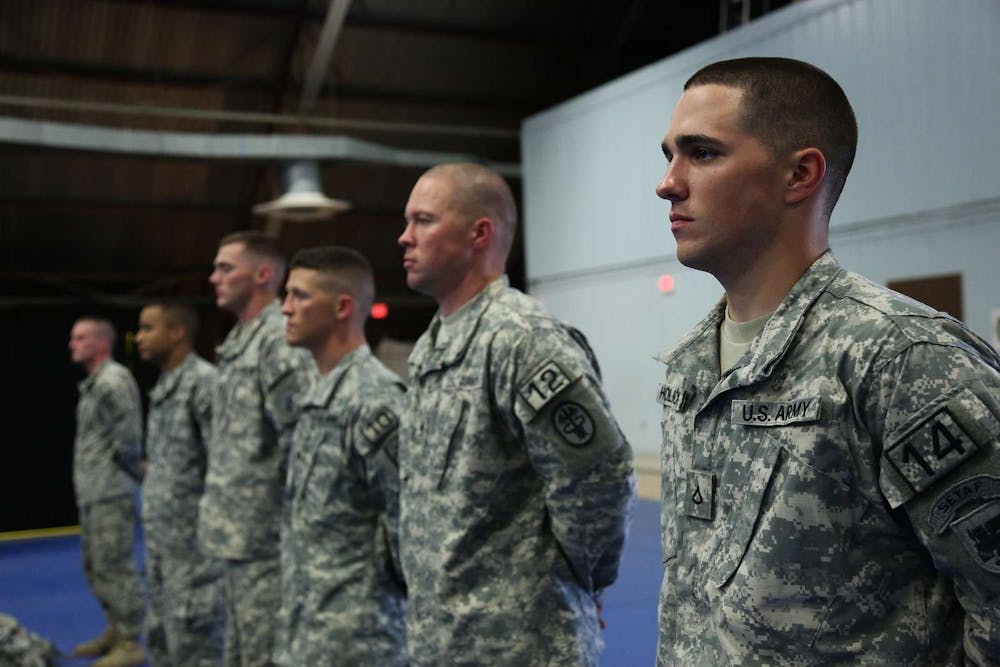The United States hastily withdrew its troops from Afghanistan, marking the end of nearly two decades of American involvement in the country. Inevitably, this pattern of support reminds me of the Vietnam War — which was once the longest war in American history before being eclipsed by the one in Afghanistan. I worry that history will repeat itself, treating Afghanistan veterans with a lack of respect. Regardless of one's views of the conflict with Afghanistan, returning soldiers deserve respect and support from the American government and its citizens.
American involvement in Afghanistan has been long and expensive. The U.S. has invested nearly $1 trillion dollars in supporting Afghan soldiers and police. Yet the removal of troops was rather swift. To explain his hasty exit, Biden pushed blame onto his predecessor and the situation itself. Biden explained that Trump made a deal with the Taliban in September of 2019 — requiring U.S. forces to leave by May 1 of this year — leaving the U.S. in a compromised position. Furthermore, Biden went on to argue that the U.S. has long since accomplished its original goal — destroying the original Taliban regime which had provided refuge for al-Qaeda in the leadup to the September 11th Attacks.
Though swift, the American public is not opposed to a U.S. exit from Afghanistan. Although Americans overwhelmingly supported invading Afghanistan in 2001, approval has since waned. Today, 62 percent of Americans support Biden’s decision to withdraw all troops. This is far from unexpected. For the most part, American involvement in Afghanistan was ineffective. Billions of dollars were invested in support of a failed cause. Although Bin Laden was killed and al Qaeda dismantled, the Taliban remained a formidable force in the country. Furthemore, the U.S. was unsuccessful in instituting a democratic government. And so, of course I oppose continued American involvement in Afghanistan and similar supposed democratizing schemes that ultimately exploit people. Veterans who fought in this war, however, should not be held responsible for the flawed ambitions of the U.S. government.
I am particularly worried about the treatment of Afghanistan veterans when I consider the mistreatment of Vietnam veterans. In a similar fashion to Afghanistan, the U.S. entered Vietnam with a supposed noble ambition — stopping the spread of Communism. Yet,, as the Vietnam War continued, public support gradually decreased until the U.S. removed its troops in 1973. Once back on U.S. soil, Vietnam veterans lacked public social support and many GI benefits, including economic assistance previously promised to them. This cannot happen again. Veterans from Afghanistan deserve support. They must be provided with all of the services promised to them by the U.S. government and treated with dignity upon their return.
Support for veterans should be independent of one's stance on the U.S. involvement in Afghanistan. Veterans, who join the military for a variety of reasons, should not be personally responsible for the misguided ambitions of the U.S. government. In particular, this argument should be considered in the context of the many predatory American institutions that push military support and involvement.
For one, consider the problematic target of many military outreach programs. The military seeks out low-income high school students and uses the appeal of economic benefits to convince them to serve their country. While there are many reasons for joining the military, we cannot ignore that financial factors are a genuine rationalization for some. The Army capitalizes off this — advertising that they can help pay for education expenses. For instance, the U.S. Army Junior Reserve Officers’ Training Corps program, which exists in high schools across the nation, offers enlistment incentives and works as a pipeline to military service. And many websites, like this one for instance, encourage parents to look into a military path for their children to help shoulder the burden of paying for college. Enlistment in the U.S. military is a convenient way for many college students to afford their tuition.
On another note, while there is endless positive media about the American military, most Americans are not intimately familiar with its realities. Although American respect for most government institutions has crashed in the past two decades, confidence in the military has significantly increased. This trend is combined with a significant decrease in American contact with the military. Eighty-four percent of modern veterans say that the American public has little or no understanding of the problems that those in the military face. There is a massive disconnect between American trust in the military and American knowledge about the military.
This all goes to say that one's reasons for joining the military may be complex and underinformed. Consequently, veterans should not be withheld promised benefits nor treated with disrespect in social settings. Recognize the role that powerful institutions — like the American media and capitalism — have played in the American military. Yes, condemn the institution, but support the individual.
Jessica Moore is the Senior Associate Opinion Editor for The Cavalier Daily. She can be reached at opinion@cavalierdaily.com.
The opinions expressed in this column are not necessarily those of The Cavalier Daily. Columns represent the views of the authors alone.







